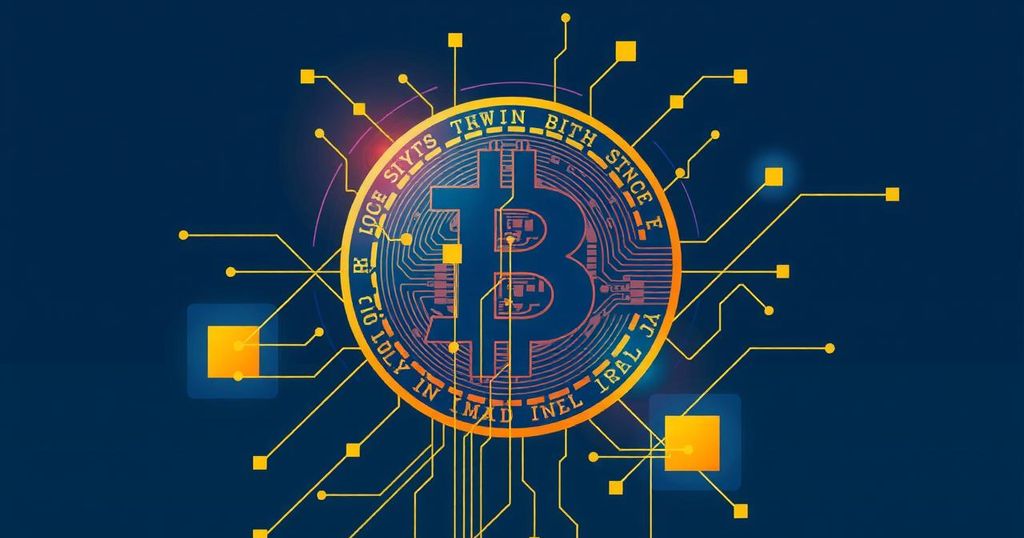Bitcoin: A Gamble or a Key to Financial Freedom?
In recent years, Bitcoin has ignited heated debates about its nature—gamble or freedom? As regulations tighten and institutions invest, its identity is reshaping finance, but how?
Bitcoin’s Identity: A Question of Value
Bitcoin: A Double-Edged Sword Bitcoin, for many, is a symbol of freedom in the financial space, while critics often label it as a high-stakes gamble. As government regulations ramp up and Wall Street increasingly integrates it into mainstream finance, the future of Bitcoin may hinge not just on its price, but on what it represents: autonomy, transparency, and perhaps a new foundation of trust. The ongoing discussions about Bitcoin conjure up a critical question: Is it just another bubble waiting to burst, or could it actually be a crucial foundation for the digital economy?
Concerns Over Regulation and Governance
Skepticism Surrounding Bitcoin’s Core Value Detractors of Bitcoin frequently highlight its notorious price volatility and argue over its lack of intrinsic value. Unlike traditional assets that generate dividends or yield income, Bitcoin stands out as an entity that is purely driven by the willingness of others to pay. This makes it susceptible to the so-called “greater fool theory”—a notion that buying it is safe as long as someone else is ready to pay more. Investors should steer clear from regarding it solely as a ‘get rich quick’ scheme, as the risks are substantial.
Structural Challenges Facing Bitcoin
Lack of Central Authority: Risks and Rewards One of Bitcoin’s more radical features is its decentralised nature. With the creator, Satoshi Nakamoto, shrouded in mystery, Bitcoin lacks a central governing body. There are no regulatory safeguards that protect owners or guarantee returns. Some worry about what happens when the 21 million coin cap is met; there won’t be new Bitcoins in circulation, meaning its long-term viability will rely heavily on user engagement and transaction fees. This raises questions about its sustainability.
Why Bitcoin Might Still Have Legs
Underlying Issues in Bitcoin’s Infrastructure Bitcoin does have its share of serious hurdles. Price volatility is a massive concern, as witnessed in 2021 when its value rocketed to nearly $65,000, only to crash below $30,000 just months later. Additionally, its value remains intangible which raises the question of reassurances for investors. Regulatory attitudes vary widely between nations, with some opting for bans while others are pseudo supportive. Overall, these factors contribute to a clouded future.
Bitcoin as Digital Gold
Support from Institutional Players Nonetheless, proponents argue there is a strong case for Bitcoin’s longevity. Major financial firms like BlackRock and Fidelity have stepped into the Bitcoin market, signalling a growing institutional embrace. Some have even started offering Bitcoin ETFs. Furthermore, Bitcoin is being seen as a hedge against inflation in economies experiencing rapid currency devaluation. Its fixed supply makes it appealing when central banks often engage in policies that can dilute fiat currencies.
Risk and Reward: The Ongoing Debate
The Resilience of Bitcoin’s Technology Fans of the cryptocurrency assert that it’s not only about the price—it’s about the technological strides it represents as well. Decentralised finance (DeFi) operations benefit from Bitcoin’s innovations and the transparency provided by blockchain technology. The ability to transfer value directly without intermediaries empowers many, especially in regions with governmental restrictions on finances. Bitcoin’s potential goes well beyond its market price; it integrates multiple facets of financial systems and challenges existing norms.
The Continued Evolution of Bitcoin’s Impact on Finance
Final Thoughts on Bitcoin’s Role in Finance Yet, let’s be honest: Bitcoin is riddled with risk. The road ahead remains uncertain and is constantly influenced by technological advancements and numerous regulatory changes. It’s important to note that its growing user base suggests that millions already recognise Bitcoin as a valuable store of wealth, a mode for financial transactions, or even a mark of financial liberty. Whether it will evolve into a stable asset or be relegated to a fleeting trend is an open question, but its impact on our view of money and trust cannot be overstated. Bitcoin has undeniably carved out its space in the conversation around the future of finance, and it shows no signs of disappearing any time soon.
Bitcoin presents a paradox: a risky gamble for some, yet a liberating asset for many others. Its place in the financial landscape is contested, but its influence is undeniable. As we navigate through the ongoing debates about its future, it is clear that awareness and discourse surrounding Bitcoin continue to evolve, reflecting the shifting paradigms of finance.




Post Comment